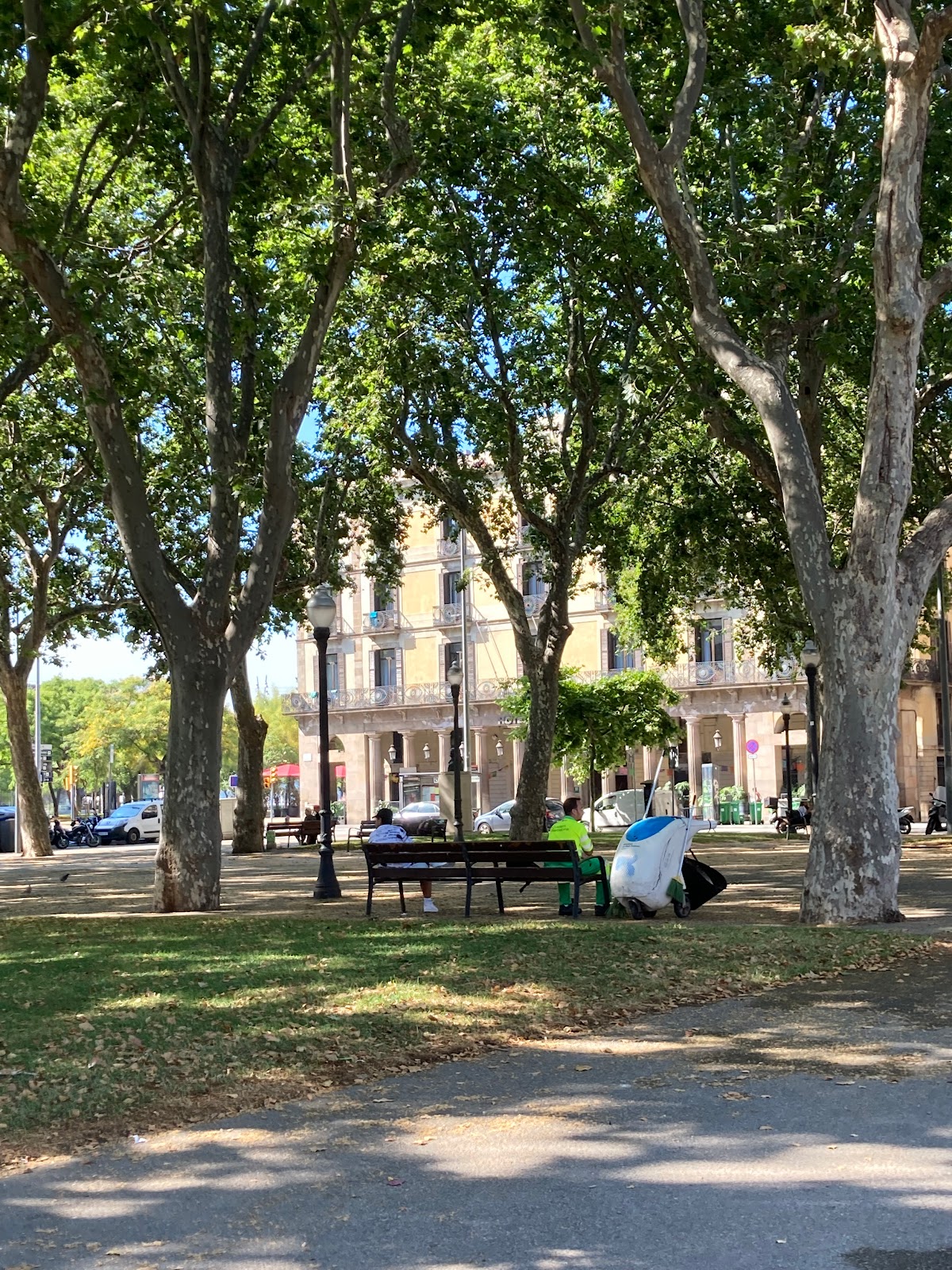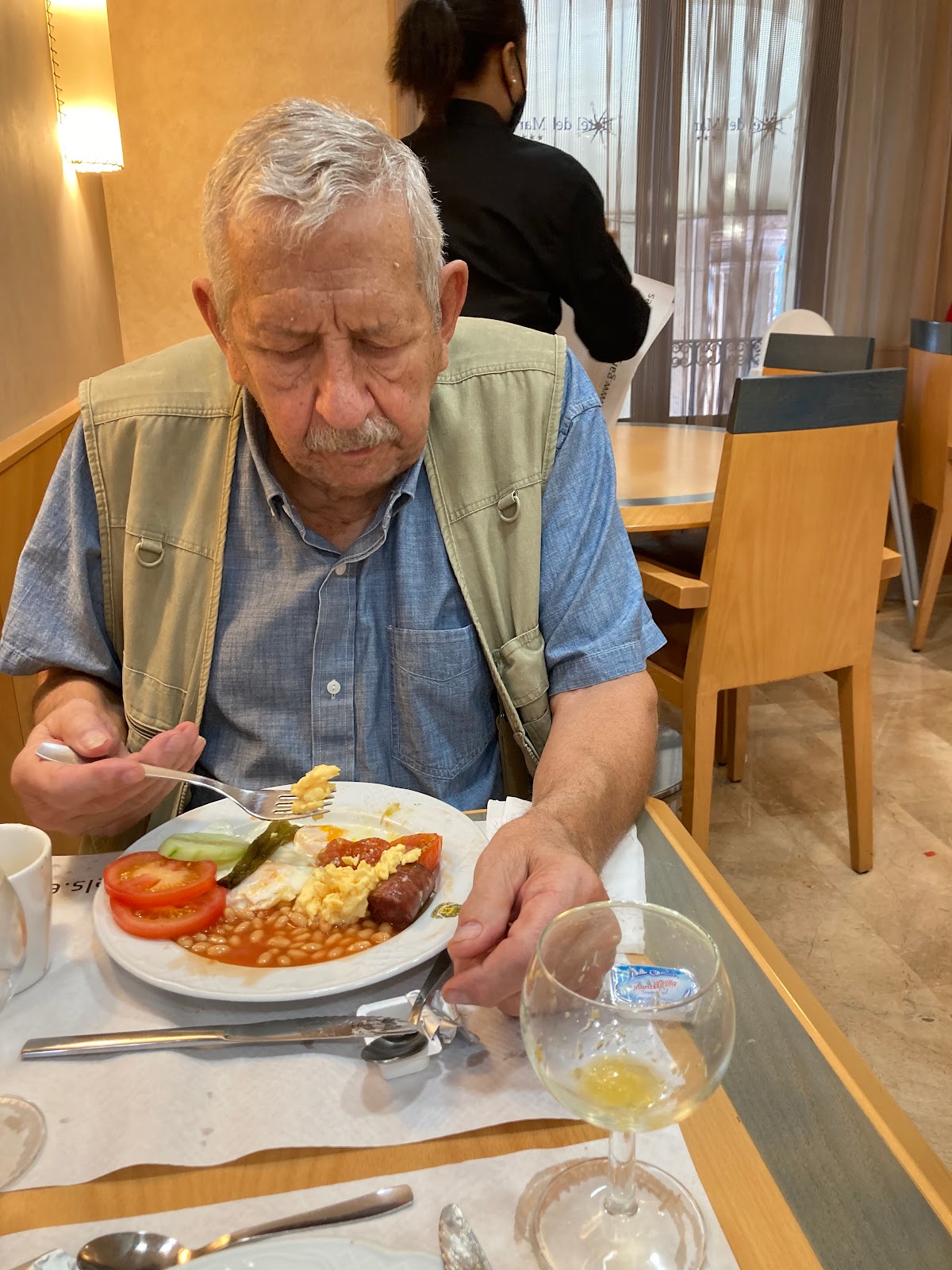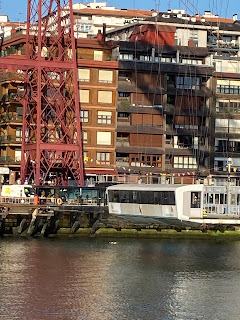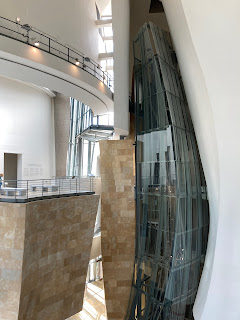We've been home for three weeks, so I've had time to reflect on our 16-day cruise in Europe. Except for travel back and forth between our apartment in Washington and our trailer in Tucson, it's the first trip we've taken since the Before Times.
As usual, I learned a bunch.
1. If you have a monthly travel budget, but you haven't done any traveling for two years, you have enough to splurge on business class plane tickets. You might have trouble figuring out how to get into your middle business class seat for the first time if you don't have very good visual/spacial intelligence; you block the aisle for a whole minute until you figure it out. The seat feels like being in a space pod. You can recline until you're lying down, and you can sleep. If you sleep for three hours in your business class seat, you don't have much fatigue and jet lag when you arrive in Barcelona.
2. It's a good idea to arrive at a tour's starting point a day early. When we went to Paris years ago, we arrived late in the afternoon of the start of the tour. I slept through the entire bus ride of "Paris at Night". Since then, we arrive a day early when we're going on a tour.
3. If you have been learning Spanish on Duolingo for two months, you can have a conversation with the Barcelona taxi driver that you almost understand. Even if you're both limited in the other person's language, it can be done. Even if you both laugh from time to time.
4. You're glad you signed up for a "relaxed" group tour. You remember times in the past when you've walked several miles without a problem. And maybe it will happen again in the future. But if you have a bad knee, you're grateful to be with a group that takes it a little easier.
5. When you are watching out for your husband, who is still recovering from a weeklong hospital stay for sepsis that resulted in physical deconditioning, you sometimes don't give your full attention to lectures and other activities. But you knew this trip would be like that, so it's okay. You would both rather have this adventure than stay at home.
6. You have a comfortable cabin on the small ship, but you come to realize that you would rather be disembarking every day than spending every other day at sea. It's unavoidable if the places you're visiting are hundreds of miles from each other, but you decide next time you'll try river cruising.
7. Wine is free at dinner, and most of your shipmates enjoy that. You, however, don't drink, so when the conversations get louder, you usually excuse yourself and go back to your cabin.
8. Walking around on a ship is good physical therapy, especially if you use the stairs instead of the elevator and if you leave your cane in your cabin sometimes. Since we've been home, I only use my cane when I'm walking a distance; in the house, and running errands, I don't. I'm stronger now for the ship experience.
9. All the ports of call were beautiful, whether in a city or in the countryside. Barcelona, Tangiers, Porto, Bilbao, Medoc, Saint Malo, Cherbourg, and Tilbury.
10. Art had wheelchair assistance in the airports. Especially at Heathrow, we would have gotten hopelessly lost and might well have missed our flights, except for the assistance, which was magnificent. The distances were good exercise for me and possible for Art.
11. The hardest part of the trip for me was being without wifi. How embarrassing.
12. In our group, eight people tested positive for covid at some point onboard, and they were confined to their cabins until they had a negative test. We were lucky. We didn't test positive until the first week after we got home!







































